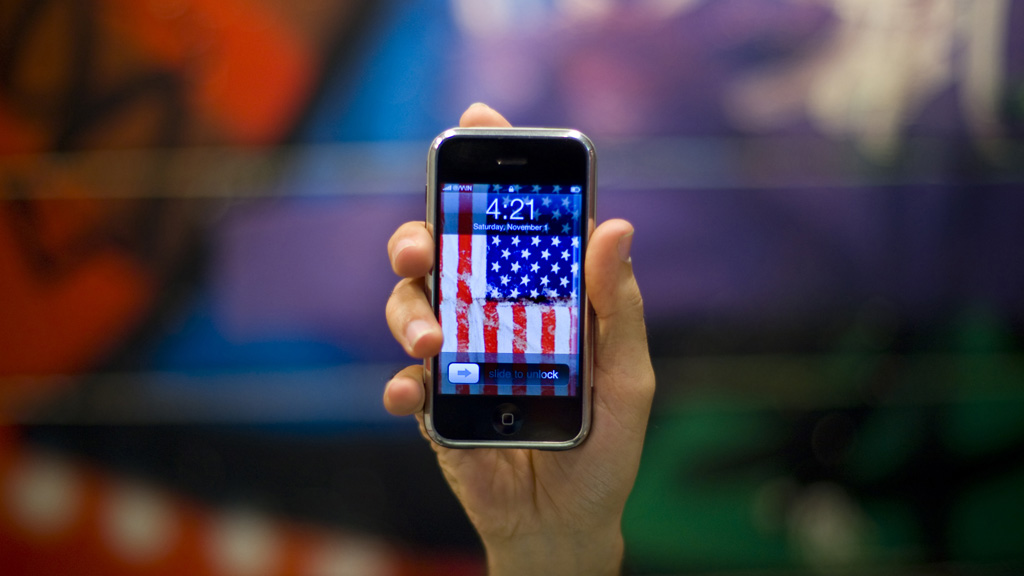From boingboing; for more on Khanna see Heroic and Radical Republican Study Committee Copyright Reform Proposal Retracted under Pressure from MPAA and RIAA:
Taking on real reform in a post-SOPA world – let’s start with cellphone unlocking
Derek Khanna at 11:30 am Fri, Feb 22
When I wrote the copyright report for the House Republican Study Committee, I had no idea the outpouring of support I would receive from the digital generation that I belong to. I wrote it solely to start a conversation amongst our Congressional Members, but instead I have seen it engage thousands of average people. The report was published on November 16, 2012. Two weeks later, on December 7, 2012, I was informed that I would not be retained as a staffer.
Despite the personal consequences, I am not giving up. I’m just getting started, and I’m not scared by a temporary setback. I’m emboldened by it. And I don’t think I’m the only one, or that I’m one of a few.
The conversation that the copyright report started is inspirational, in the face of a political establishment (on both sides of the aisle) which often refuses to acknowledge that we are paying attention. It is up to us, the public, to be engaged. If we are not satisfied with our policy-makers and the policies that they enact, we can change the policies by challenging them.
• We have the ideas, we have the tools, and we have the organization.
President Obama and the Tea Party show that an energized and engaged citizenry can elect candidates in grassroots movements. And we have seen them stop legislation in its tracks. SOPA’s opposition proved that a united digital movement can stop legislation that is expected to pass despite overwhelming odds, special interest’ cronies, and powerful politicians.
Working on Capitol Hill during SOPA was humbling.
For weeks many of the technology-savvy staffers saw the storm clouds of opposition against SOPA building, but we had no idea how massive or sudden the storm surge would be. Many of us were strongly against what we saw as internet censorship from the beginning, working behind the scenes to try and get our bosses on the right side of the issue. Many of us were brushed aside.
But, on January 18, the effect of the movement was deafening. Voters crashed congressional circuit boards and websites, tweeting and facebooking at Representatives and Senators in record numbers. Most of us had never seen anything like this before, and for many it was an abrupt, sobering reminder of what democracy really is. Members’ sudden, vocal opposition of legislation that they were co-sponsoring was a watershed moment&mdsah;thought I would argue that it was also proof of concept for something even bigger.
SOPA awoke the sleeping giant.
A digital generation is ready to change politics and policies, and they will succeed. They will do this by rallying behind new ideas, coalescing around legislation, and by leading campaigns for passage. The show of force during SOPA was impressive. But getting legislation on the table for consideration requires another level of activism. It’s a challenge that we will soon rise to.
Politics is not exclusive to the intellectual, elected, or rich. Politics starts at kitchen tables, water coolers, gyms, bars, and churches. But how does it manifest itself as real change? Put simply: Idea + Movement + Effort = Legislation
I am confident that we can do this, even the special interests expect us to give up. To them, politics is about vested interests, donations and who has the biggest hired guns. Their cronies are counting on us being overwhelmed. They are banking on us fearing failure, on our failing to try in the first place.
I invite you to join us and continue this fight for future battles.
How do we start?
This fight is going to take a generation. It’s going to take a movement. But let me suggest, for what it’s worth, a few pointers.


 Yale Law Fellow, columnist and policy expert Derek Khanna authored the controversial House Republican Study Committee memo “
Yale Law Fellow, columnist and policy expert Derek Khanna authored the controversial House Republican Study Committee memo “


You must log in to post a comment. Log in now.